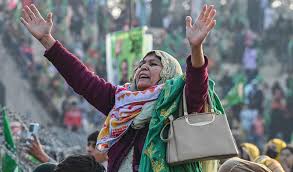By: Munaza Kazmi
A significant archaeological and historical site, Taxila, in the northwest of the Indian sub-continent, now Pakistan, branded to the world for its Buddhist background, had momentous plots in setting world history. It was a frontier town enriched by the blending of four great civilizations- India, Persia, Greece, and Rome. The city flourished for nearly a thousand years, from the middle of the first millennium BCE to the middle of the first millennium CE, then went into decline around the fourth century CE, and was burned down by Huns in the fifth century CE.
Legend has it that an ancient Indian king Taksha, the son of Bharata and Mandavi, historical characters in the Indian epic Ramayana, who ruled in a kingdom called Taksha Khanda (Tashkent) founded the city of Takshashila, it was a Sanskrit word that means “belong to the King Taksha”.
Taxila, enjoyed a reputation as a major commercial point as it stands at the crossroads of three major trade routes: The Royal highway from Patalipurta then the Imperial Capital of the Mauryan Empire, the north-western route towards Kabul, and to Central Asia through Haripur.
The city had a special intellectual vibrancy, back in time it was the most renowned of the earliest Buddhist centers of higher education in India and drew students of talent or means from all over India. This was where Jivaka, the celebrated ancient physician, had his education, and it was also the home of Panini, the great Sanskrit grammarian, and many illustrious gurus including Kautilya, the advisor of Chandragupta Maurya, founder of the Mauryan Empire. Moreover, the celebrated treatise Arthashastra was composed in Taxila.
Taxila had been variously a capital for many dynasties, and a center of Vedic culture and Buddhist learning, with a population of Buddhists, Classical Hindus, and Greeks who probably have endured for centuries.
Today Taxila is one of the seven sub-districts of Rawalpindi District of Pakistan. Scattering over an undulating land in the periphery of the Pothohar Plateau of the Punjab. Taxila is a mix of urban and rural environs. Urban residential areas are in the form of small colonies populated by the workers of heavy industries, educational institutes, and hospitals that are located in the area.
There is a Museum, dedicated to the remains of the Gandhara civilization, that needs serious attention by the government if it is interested in guarding its history, of which on the contrary I sense. The treasures were left to ruin without even a glass protection.
Moreover, there are several Buddhist monasteries, to which I would comment the same, no pain for the restoration, big bellies smoking cigarettes in air conditioning rooms.
While visiting Taxila, I found some small, cottage and household industries including stoneware, pottery, and footwear. However, artisans try to relate the present-day stoneware craft to the tradition of sculpture making that existed here, well nothing I found that caught my attention since this city is known to the world mostly because of Buddha, sadly there was not a single sculpture of Buddha in the market that was really astonishing.
There is still much to reveal and discover in Taxila however an eye for adoration and a heart of tolerance are required.
The writer is a travel blogger. She can be reached at munazaqazmi@icloud.com
















